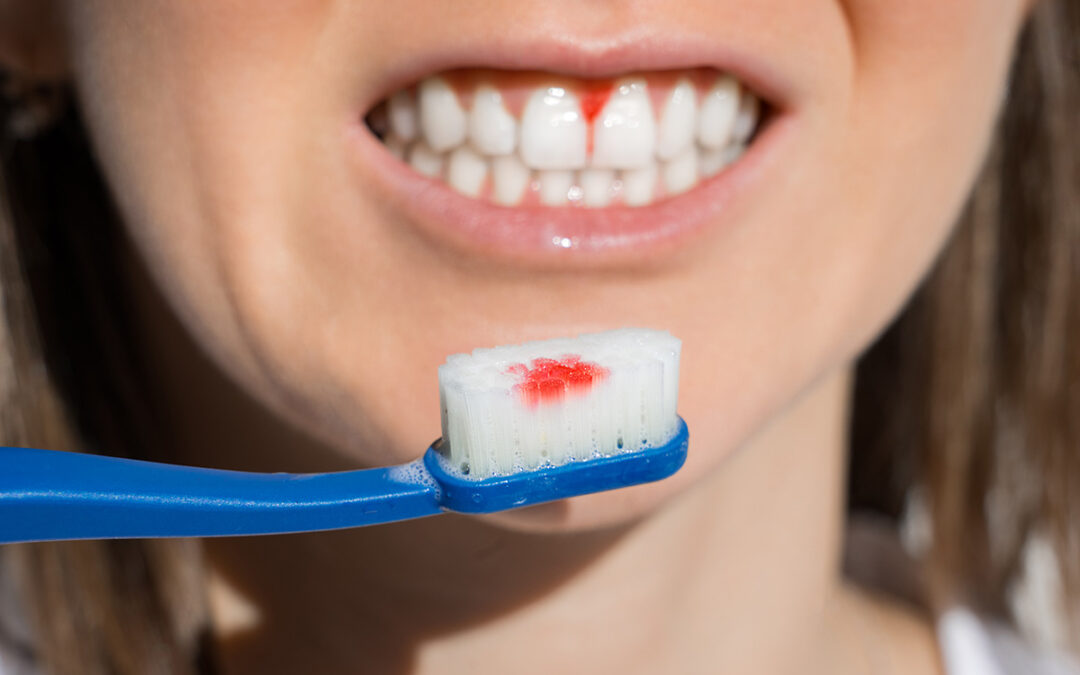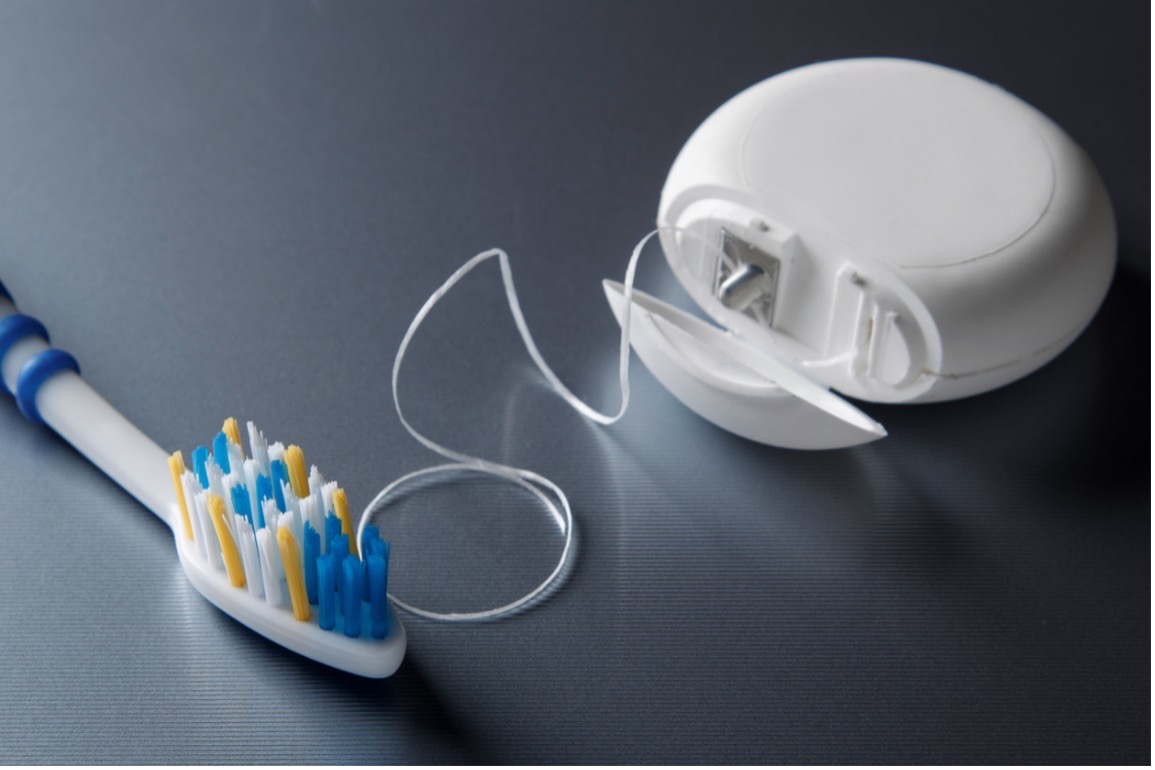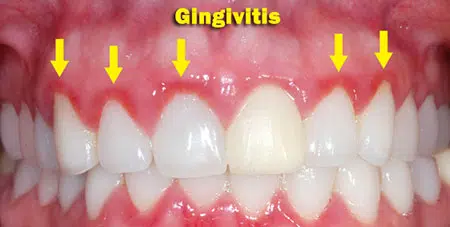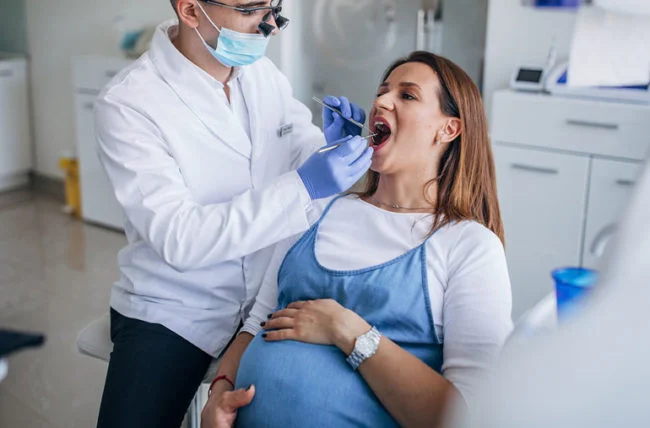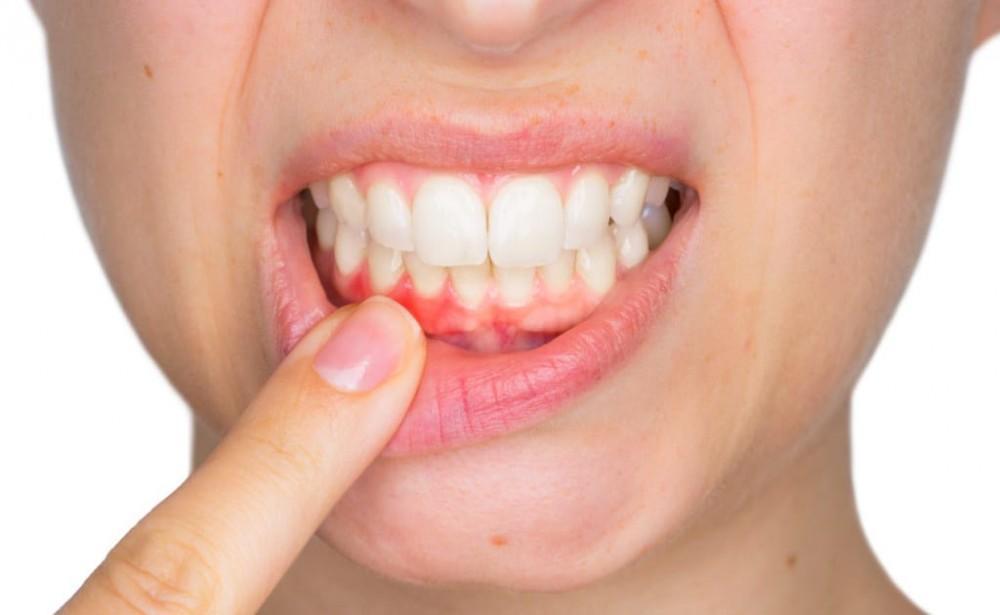
Bleeding Gums: Causes and Prevention
One of the most common dental concerns we hear from patients is “my gums bleed when I brush.” According to the CDC, around 47% of adults over age 30 have some form of gum disease.
While a great deal of emphasis is placed on avoiding cavities, it is just as important to monitor your gum health. Your gums are not only essential to the health of your teeth but your systemic health as well. All the bacteria from the mouth pass through the gums to the body and create havoc. Diseases like SABE ie Sub Acute Bacterial Endocarditis, respiratory disease, Rheumatoid arthritis etc are related to gum / periodontal disease. Light and occasional gum bleeding may not signify a problem, but gums that are red, swollen or bleed frequently or heavily are often an indication of a problem. It can be gum disease, a medication you are taking or a sign that you are over-brushing or brushing too hard.
While you may be accustomed to seeing a little pink in the sink when you brush and floss, bleeding gums are a sign of inflammation as healthy gums should not bleed! Infact the best dental clinics in Delhi are stressing a lot on counselling their patients on gum health.
If your gums are bleeding, it’s crucial to find out why. While not all bleeding from the gums is a cause for urgent concern, it can be a symptom of a larger problem. Visiting the best dentist in Delhi, can help you identify the causes of your bleeding gums.
At ‘Smile Delhi,’ our team of specialists are experts in preventing, diagnosing and treating diseases affecting the gums and teeth.
Keep reading to find out some of the common causes of bleeding gums.
Causes of Bleeding Gums
1. Brushing or Flossing too Hard
Most of the gum bleeding occurs shortly after brushing and flossing. A toothbrush that’s too hard or flossing that’s too rough can irritate your gums. Ensure that you keep flossing every day, this can remove food in between the teeth and stave off the gum disease that makes your gums sensitive.
Flossing
Some light bleeding while flossing may be natural for you. If your gums suddenly bleed while flossing, consider whether you have switched products or changed up your habits. If you go days without flossing, it is not common for some light bleeding to occur when you floss again. It is best to floss every day and be mindful that there is no need to floss multiple times a day.
Bristle Hardness
Soft-bristle toothbrushes are recommended for the average adult. Each person is unique and may be able to withstand a harder bristle; so a soft to medium bristle brush is recommended but not hard. Ideally, you should find a toothbrush that suits you and use it on a regular basis.
2. Poor Oral Hygiene and Periodontal Diseases
Suboptimal oral hygiene can lead to bleeding gums for a host of reasons. You may think of poor hygiene in terms of being consistently inadequate, but even temporary lapses can wreak havoc in your mouth. Consider that the quality of your oral hygiene is often defined by your willingness to stick with a proper routine each and every day. Brush twice a day with fluoride toothpaste for at least two minutes at a time and floss daily.
Rinsing thoroughly with just water after meals or whenever you eat is basic however very effective, to do away with the sticky food debris.
Poor oral hygiene is one of the most common causes of bleeding gums. Plaque and tartar accumulation at the gum line leads to inflammation of the gingival tissues and bleeding when brushing or flossing. Gum disease comes in two forms:
- Gingivitis
- Periodontitis
Bleeding gums is an indicative symptom of both forms of gum disease.
Gingivitis is the earliest stage of gum disease. Inflammation of the gums can lead to redness, swelling and tenderness. It can also cause bleeding when you brush or floss. The best dentists in Delhi stress the fact that 6 monthly cleanings are mandatory.
Gingivitis occurs as plaque accumulates along and beneath the gum line. This plaque is a sticky substance and will harden into tartar, which can only be removed through professional teeth cleaning done appropriately by the best dental clinics in Delhi. Plaque is a breeding ground for bacteria that infects the gums and leads to bleeding, sensitivity and other symptoms.
The good news is that gingivitis (inflammation of the gums) is reversible. The bad news is that if left untreated, it can quickly evolve into periodontitis (where the jaw bones get involved) which involves loss of support around the tooth. This loss of support (both gum tissue and bone) can lead to recession, shifting of the teeth and eventual tooth loss. Regular brushing and flossing, as well as routine dental checkups at the best dental clinics in India, are the keys to avoid gum disease.
Periodontitis is an advanced stage of gum disease that can lead to tooth loss, receding gums, bleeding gums and pain when chewing. Untreated plaque and tartar allow bacteria to make their way beyond your gums and into your bones, causing deterioration that may eventually require surgery.
3. Pregnancy Gingivitis
While it’s not typically talked about, gum bleeding during pregnancy is quite common. That’s because hormonal changes can make your gums more vulnerable to plaque build-up, causing ‘pregnancy gingivitis.’
Due to hormonal changes, blood flow increases to the gum tissue which can lead to bleeding and swollen gums. Hormonal changes can also impact the body’s ability to fight infection, making you more susceptible to the bacteria in plaque during this time. As a result, inflammation in the gums increases and bleeding occurs more often than usual. Be sure to discuss your pregnancy with the best dentist in South Delhi.
4. Poorly-Fitting Dental Hardware
Your gums may bleed if you have poorly fitting dentures or faulty dental restorations. The best dental clinics in Delhi can give you unique insight into how your dental hardware affects your gums.
5. Poor Diet and Vitamin Deficiencies
While sugary foods can lead to cavities that let bacteria run rampant in your mouth, a diet lacking vitamins C and K can also affect your gum health. Vitamin C provides your gums with collagen and Vitamin K helps with blood clotting.
Vitamin C is essential to gum health. Fresh foods and vegetables are excellent choices for your gums and are often high in vitamin C. Limit your intake of starches and sugars. Be careful with processed foods, although often difficult to diagnose, some processed foods contain ingredients that can irritate the gums and cause them to bleed.
6. Medications
At the beginning of your dental appointments, you will most likely hear the best dentists in Delhi ask if there have been any changes to your medical history. There are a myriad of reasons why medical history is related to dental care, but one big reason is medication side effects. Many medications can cause gingival inflammation and bleeding as a side effect. Aspirin and other blood thinning medications can lead to increased gingival bleeding due to their effect on the viscosity of your blood. Additionally, certain seizure medicines, immunosuppressants and high blood pressure medications can cause gingival inflammation. If you notice that an increase in gingival bleeding began when you started a new medication, talk to the best dentist in Delhi or doctor about the medications you are taking and any potential oral side effects.
In most cases, bleeding gums are caused by the factors listed above, but certain cancers, autoimmune disorders, and other medical problems can cause bleeding gums as well. If you are concerned, it is always best to talk to the best dentist in India or physician.
7. Smoking or Vaping
Smoking as well as vaping damage your gums and make you more prone to gum disease. Once your gums bleed and other symptoms of the disease manifest, a nasty cycle begins. Dangerous bacteria may become trapped beneath the gum line and between the teeth. It can even make their way into your bloodstream. Quitting these activities completely is the only way to prevent this from happening.
8. Stress
Stress is a fact of life and it is not just psychological. Stress weakens your immune system and makes you less able to ward off health issues, including gum disease. It also inflames blood vessels, which can slow the healing of the gums. It is essential to make a concerted effort to manage your stress levels.
9. Malocclusion
Malocclusion is the technical term for an improper bite, which means that your teeth are not ideally aligned. Misaligned teeth can lead to teeth grinding and undue pressure when biting down. These forces affect not only your teeth but the supporting bone and tissue. Over time, this can lead to gum recession and bone deterioration, which makes gum disease and bleeding much more likely. Also malaligned teeth have catch areas for food. It is not easy to clean them.
10. Other Health Issues and Habits
Bleeding gums are common in people with certain health conditions, including diabetes (types 1 and 2), leukaemia, thrombocytopenia, haemophilia and more. Your treating physician or gum specialists / periodontist can give you pointers on how to deal with this side effect. Habits like tobacco use can also cause gums to bleed.
Prevention
How to Control Bleeding Gums
For the most part, bleeding gums can be controlled by regular dental cleanings and home care. For most patients, dental cleanings should be performed every 6 months. In cases of periodontal disease, the best dentists in South Delhi might recommend a deep cleaning to remove all plaque and tartar below the gum line and more frequent recalls. However, without appropriate homecare, the benefits of professional treatment will not be realized.
Brushing twice a day and flossing once a day are key to reducing bleeding gums. Improper brushing and flossing technique can lead to bleeding gums if too much pressure is applied either with floss or your toothbrush. Additionally, when you first begin flossing regularly you may experience bleeding, but this should subside within a week. If you are concerned about bleeding gums, talk to your dentist at ‘Smile Delhi,’ about the potential cause and appropriate treatment for it.
How Can the Best Dentist in Delhi Help Me With Bleeding Gums?
Bleeding gums are common, but it can be a sign of a health condition. It’s best to get a professional opinion from a gum specialist like a periodontist at the best dental clinic in Delhi to ensure you’re using the best prevention. Periodontists can perform a perioscopy to see beneath the gums as well as scaling and root planing and laser gum therapy that can help treat gum disease in its early or late stages.
Get Treatment for Bleeding Gums in ‘Smile Delhi- The Dental Clinic,’ New Delhi.
If your gums are bleeding profusely (whether due to an accident or an unknown cause) you should seek emergency care. But most bleeding gums can be treated by one of the skilled periodontists / gum specialists in the best dental clinic in Delhi.
Schedule an appointment today at ‘Smile Delhi- The Dental Clinic,’ in New Delhi.
Be Proactive About Frequent or Serious Gum Bleeding
If you experience minor gum bleeding from time to time, discuss it with your dentist during your next regular checkup. Regular checkups are essential for ensuring your gums are as healthy as possible. After all gums are the foundation of the teeth. If your gums are bleeding on a persistent basis or you have experienced a level of bleeding that has made you concerned about your health, do not wait for your next regular appointment. Schedule right away.
The best dental clinic in South Delhi can assess your gum health. They can talk to you about your oral hygiene routine and any lifestyle changes that may be affecting your gums. After diagnosing the cause, your dentist can advise treatment. If it is gum disease and you wait for the next scheduled checkup, the problem can become a lot more serious in that window of time and you can cause yourself unnecessary discomfort.
To book an appointment with us at, ‘Smile Delhi – The Dental Clinic’– call us on +91-9811106871 or whatsapp Dr. Suprriya B Bhatia on +91-9811106377. You can also mail us on [email protected].
“We Care To Make You Smile”
Posted by: Dr Hema


